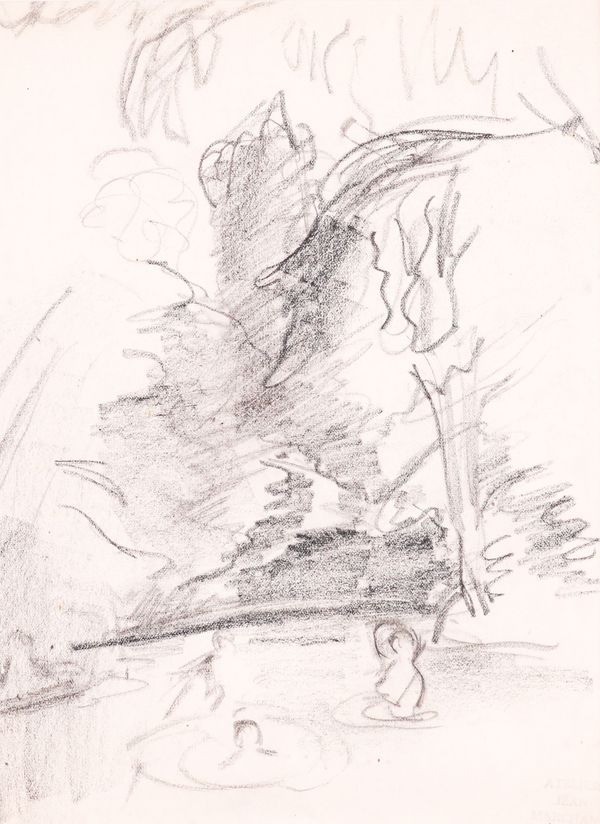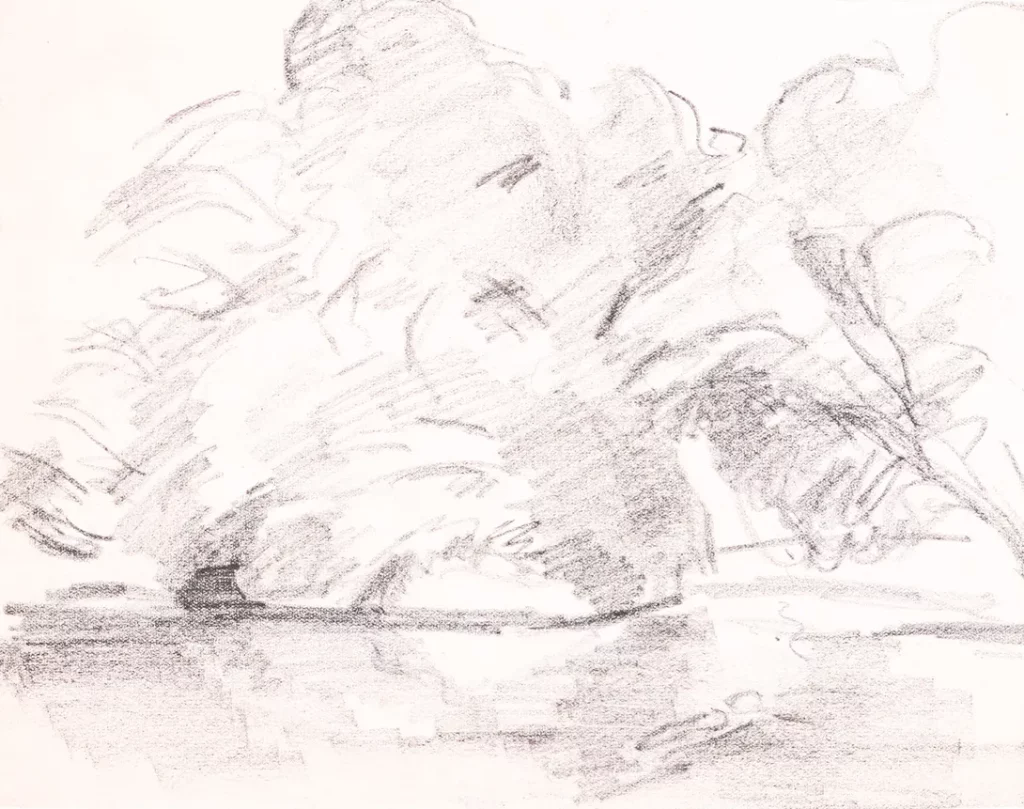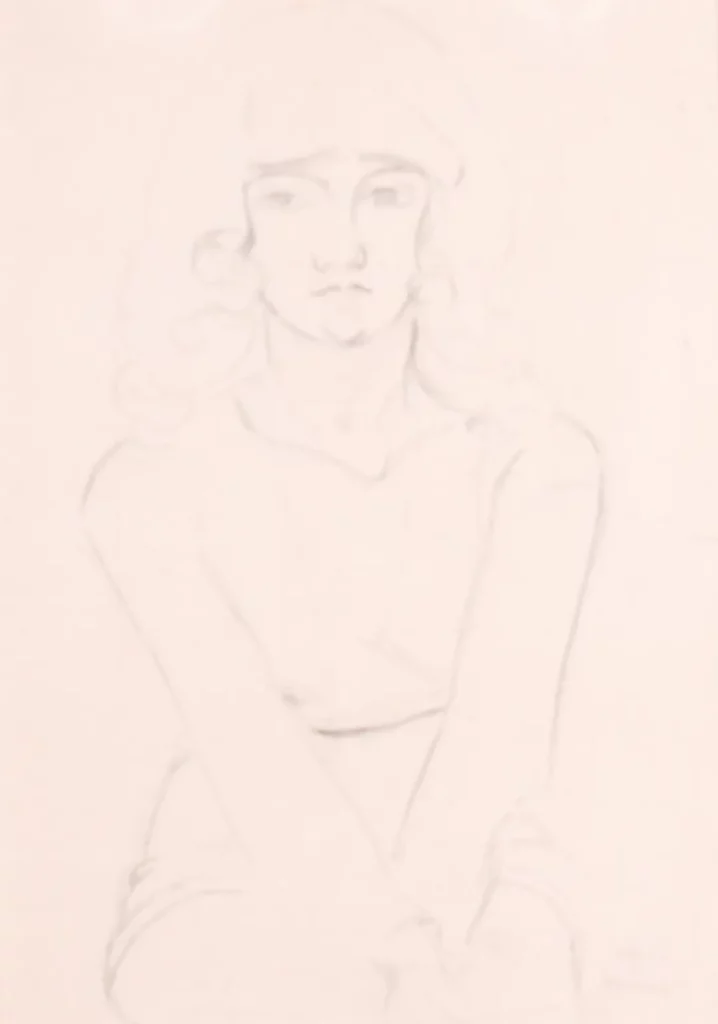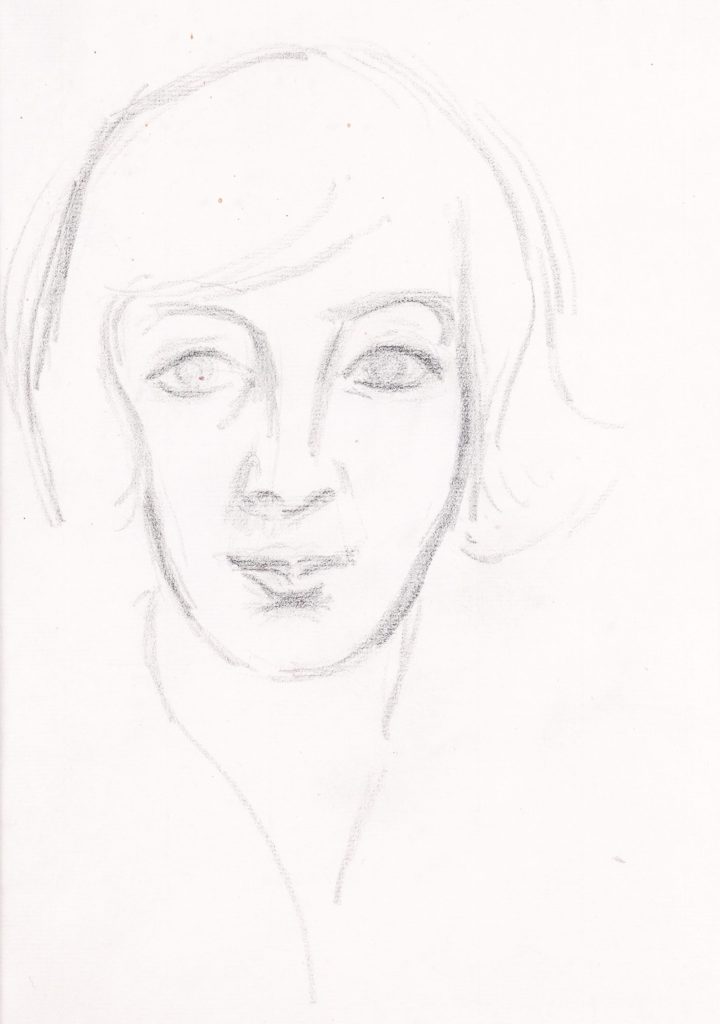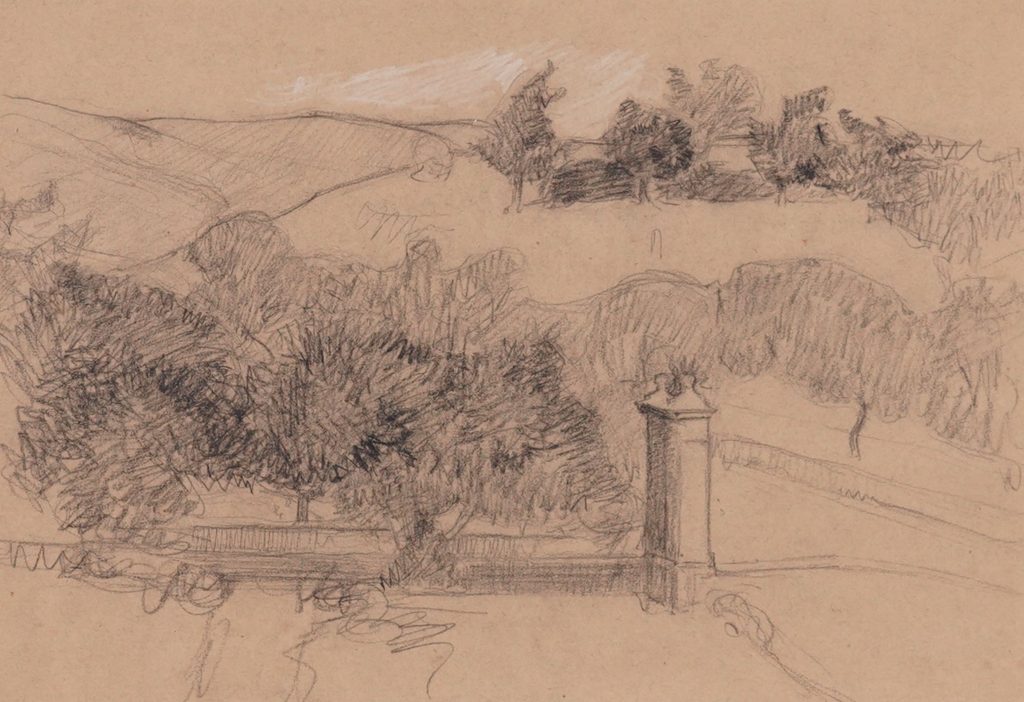
Jean Marchand was born in Paris and studied at the École des Beaux-Arts from 1902 through 1906. He had supported his artistic ambitions by designing fabrics and jewellery as well as opera sets and book illustrations.
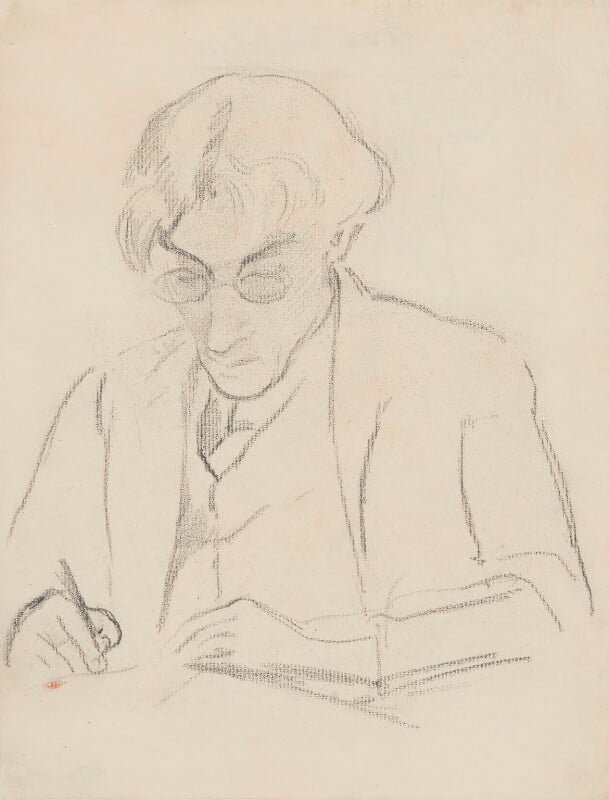
National Portrait Gallery
Marchand had met Roger Fry in Paris. Fry had an active social life in the Parisian artistic sets through the friends he made there like Picasso and Andre Derain, the latter who with his wife Alice held court in the cafes with a group of artists known as la bande a Derain; These included George Braques, Andrew Salmon, Joan Oberle along with Jean Marchand, Moise Kisling and Louise Marcoussis.
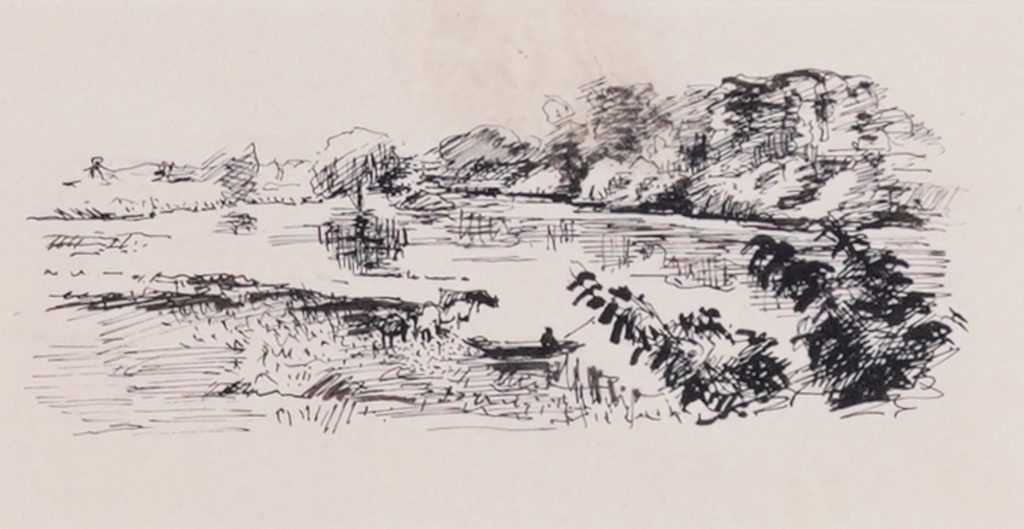
Marchand’s style was plain air and naturalistic in the post-impressionistic circle of Cezanne. In Paris he came to the attention of Roger Fry who invited him to submit work to Fry’s now famous 1910 exhibition Manet and Post-Impressionism and the Second show in 1912. He later had an exhibition at the Carfax Gallery in 1915.
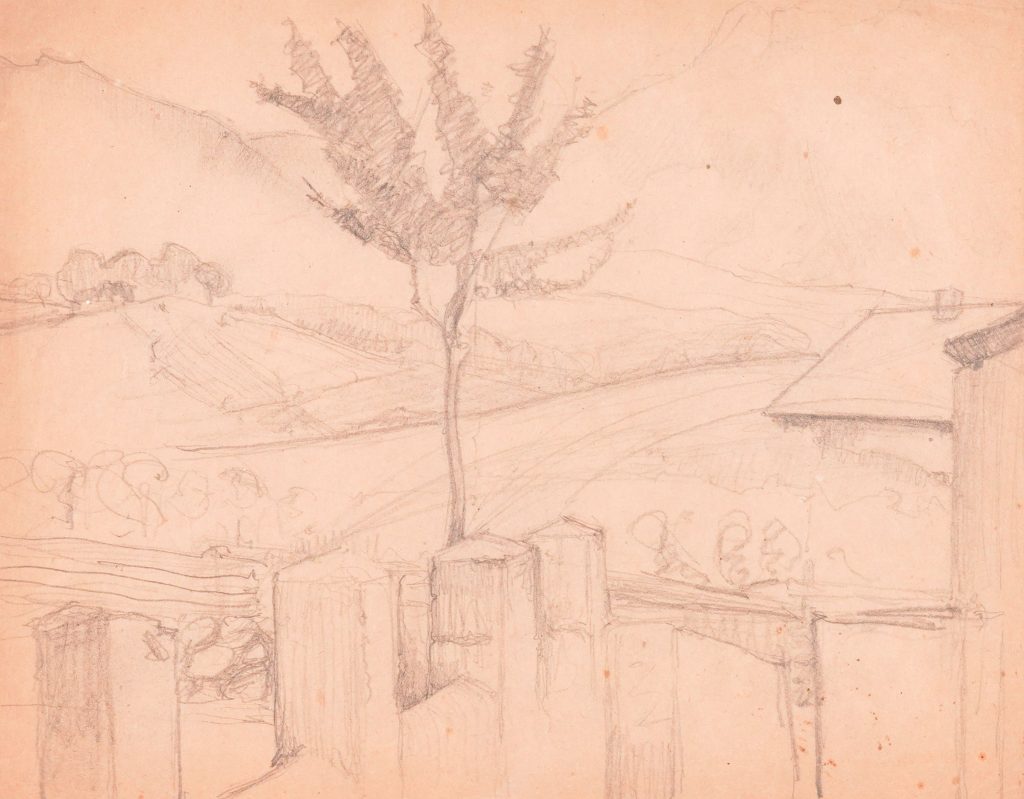
Fry intended to show the ways in which impressionism had expanded from its French origins and taken root in other countries, specifically Russia and England. In the second exhibition, the French works of art by Cézanne, Bonnard, Matisse, Picasso, Derain, Marchand, and others that Ottoline, Desmond, and Duncan had helped Roger select in Paris were juxtaposed with Russian and English paintings. The Russian paintings were chosen by the mosaicist Boris Anrep, husband of Helen.
Mary Ann Caws – Bloomsbury and France
From his exhibitions in London Marchand became respected by a series of artists, including Frances Hodgkins, St. John and Mary Hutchinson, Hilton Young, and Percy Moore Turner and the members of the Camden Group who invited him as a guest exhibitor.
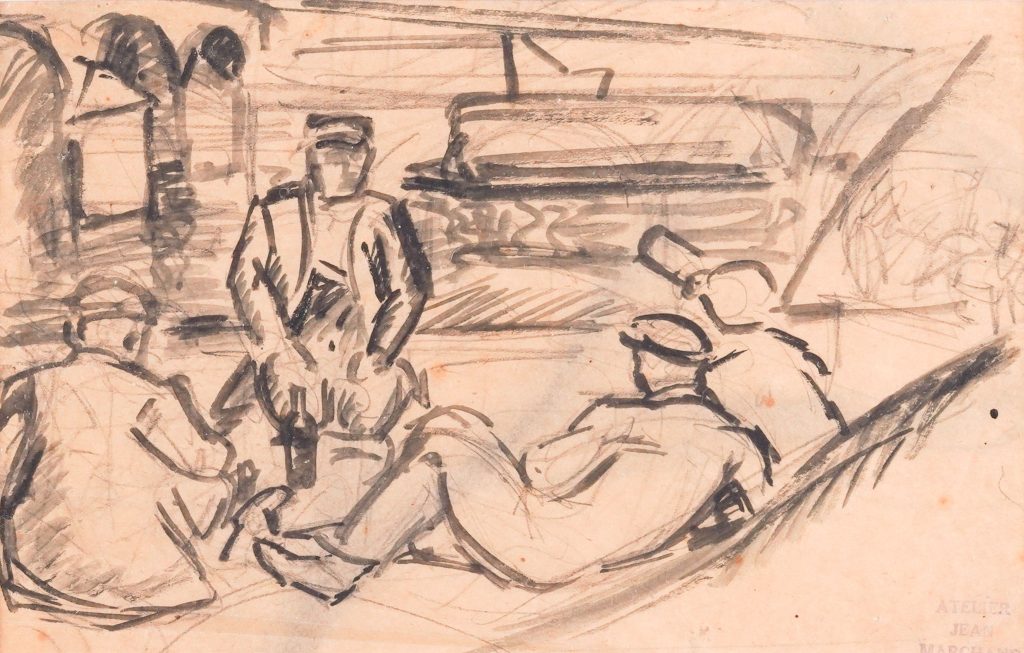
In Paris Duncan Grant and Vanessa Bell got to know Marchand too, buying his pictures that still hang in Charleston Farmhouse today and visiting Jean and his wife in Cagnes. Later Quentin Bell would study under Marchand at the Academie Moderne in Paris in 1928. Jacques and Gwen Ravarat hosted Marchand at their home in Vence in 1924 where Roger Fry would visit and paint alongside him. Marchand stayed with the Ravarats supporting Gwen when Jacques died.
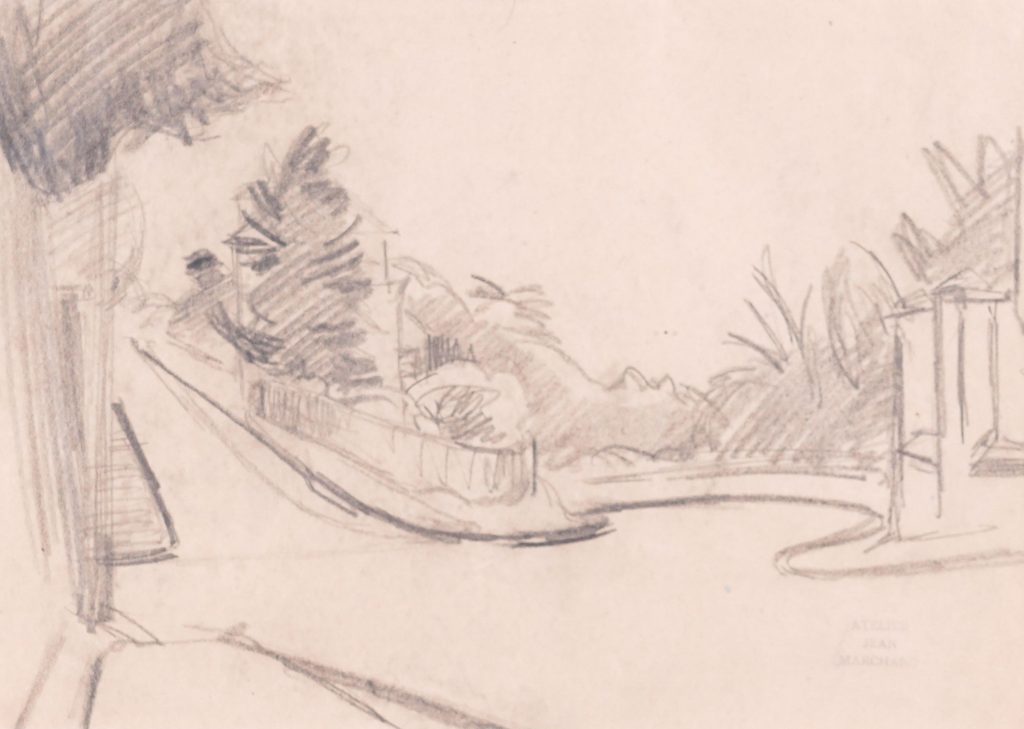
Jacques died in the early hours of 6 March 1925. It was a Friday morning. Gwen rested a little, then broke the news to the children when they woke, Marchand stayed all day and by degrees made Gwen feel sane again. … Markhand together with the town Mayor, as was then the custom, signed the death certificate.
Frances Spalding – Gwen Raverat
Roger Fry and Clive Bells respect for his work also bought him to the attention of Samuel Courthauld who bought and collectors like Frank Hindley Smith, the mill owner who left a painting to the Tate, and prints and drawings to the British Museum.
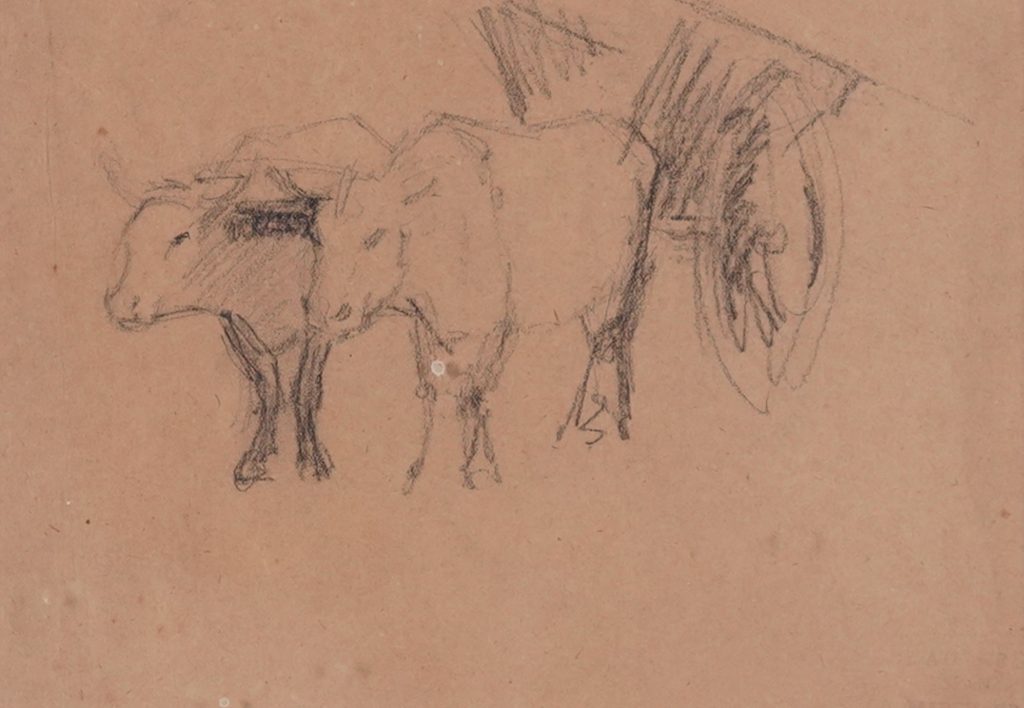
Marchand was renowned for his still lifes, but his “tight modelling” impressed Duncan, and Roger liked him for his simple and serious character.
Mary Ann Caws – Bloomsbury and France
His work is represented by the Crane Kalman Gallery who also held his memorial exhibition in 1967.
Also, if you want drawings etc. an art representative. Lewis, Wadsworth, John, Roberts, Sickert ought to be glad to have their drawings used. There are of course important people in Paris too: Picasso, Modigliani, Matisse, Marchand etc.- T S Eliot to Scofield Thayeron artists to feature in Dial.
Letters of T. S. Eliot
